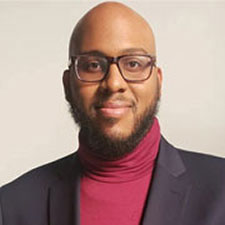Navigating Conflict with Dignity
July 24, 2024
1:00 PM - 5:00 PM (ET)



Facilitator

Jason Craige Harris
Consultant
National Diversity Council
All human relationships are marked by conflict, which, if left unaddressed, can become a crisis. Conflict happens in a group or between individuals when something in their relationship needs to shift to foster greater well-being. How we view conflict, and how we handle conflict, can escalate it into an unhealthy dynamic––or de-escalate and transform it into deeper connection. Conflict can de-skill us, leading to our otherwise smart selves feeling adrift. What is often needed in situations of conflict is for parties to reflect on their role in the conflict, what needs and obligations have gone unmet, and what they might say and do to move the conflict toward resolution. This workshop will explore conflict as a normal part of everyday life and as an opportunity for connection that anybody can learn skills for seizing. In this session, leaders will learn about the science of why dignity matters, how to uphold it, protect it, and repair it, and how to use dignity to transform conflict into connection. This workshop will equip participants with concrete practices for navigating conflict like empathic listening, reframing, asking affective questions, utilizing Non-Violent Communication, and making a good apology. Participants will: ● Learn to build conflict resilience among participants ● Learn to identify the causes of why conflict escalates and how we can de-escalate into deeper connection ● Be introduced to the Dignity Model as a way to prevent and address dignity violations like identity-based harms or microaggressions ● Learn to develop conflict transformation skills like empathic listening, reframing, affective questions, metabolizing shame, and managing stress responses
Non-Partner (Non-Profit): $569
Non-Partner (For-Profit):$599
NDC Graduate Network: $250
Register
All NDC Virtual Suite sessions can also be offered as private sessions. Contact us at [email protected].
